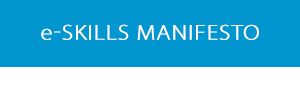ΝΕΑ

05/08/2016
What do you really need today to break into IT
The IT sector has been changing rapidly over the past years and, as a consequence, so have the skills and experiences organisations are looking for in a candidate. More and more, employers are turning to certifications, internships and apprenticeships.
Hiring leaders are increasingly focused on identifying candidates with specific talents, regardless of where they were acquired. According to CompTIA’s 2015 study, HR Perceptions of IT Training and Certification, 98 percent of HR and hiring managers are willing to consider qualifications outside of university on an applicant’s resume. Almost half (42 percent), of HR and hiring managers will consider significant experience instead of a degree, while 38 percent view a certification from a reputable organisation as a viable alternative, and 35 percent hold internships and apprenticeships in equal regard.
Even so, a majority of students and parents view a bachelor’s degree as a necessary credential within the IT industry. However, skills and experience are the new currency for budding careers in technology. This skill-focused alternative to traditional degrees is a pragmatic approach. It comes at a lower price tag than even public universities and translates directly to expertise used on the job. Showcasing these qualifications on a resume or cover letter also makes it easier for hiring managers to match their needs against applicants’ skills and experiences.
Since university is not the only way to make it in IT, a good approach is to combine hands-on experience through internships or apprenticeships with certifications, which can serve as a powerful indicator of your work-readiness and expertise. They also provide a common foundation to build on with more advanced or specialised training, enabling you to progress in your IT career while providing tangible proof to current and future employers.
Nontraditional education and skills-focused hiring have long been the norm for programmers and developers (and the people who employ them), but these norms are finally permeating throughout the industry. From helpdesk support to product development, the industry has moved to adopt a skills-first approach.










